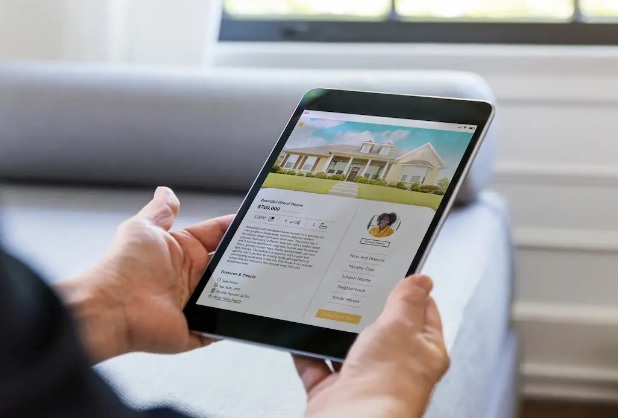Selling Your Home Online: A Comprehensive Guide
In today’s digital age, selling your home online has become a popular and convenient option for homeowners looking to make a move. With the advent of technology and various online platforms, the process has become more accessible than ever before. Whether you’re looking to sell your home quickly or want to maximize your profit, there are several options available. In this guide, we’ll explore the various methods and strategies for selling your home online.
1. Why Sell Your Home Online
Selling your home online offers numerous advantages, including wider visibility and reach for prospective buyers. It allows you to tap into the vast online audience searching for homes, increasing your chances of finding the right buyer.
2. Using a Real Estate Agent
One popular option for selling your home online is to enlist the services of a real estate agent. They can list your home on the Multiple Listing Service (MLS), providing maximum exposure to potential buyers. Websites like Redfin offer discounted commission fees, ensuring professional marketing and photography for your property.

3. Selling Your Home to an iBuyer
Another option gaining traction is selling your home to an iBuyer, such as Opendoor. This streamlined process involves receiving a preliminary offer within minutes after providing basic information about your home. A video walkthrough further evaluates your property, and if the offer is accepted, you can choose your closing date and receive payment within days.
4. Selling Independently as FSBO
For those who prefer more control over the selling process, selling independently as a For-Sale-By-Owner (FSBO) is an option. While it offers higher potential profits, it also means handling all tasks, from listing to closing, yourself.
5. Preparing Your Home for Online Listing
Before listing your home online, it’s crucial to prepare it for the market. Ensure your property is in excellent condition, making any necessary repairs and staging it to appeal to potential buyers.
6. Creating a Compelling Online Listing
Crafting an enticing online listing is essential to attract potential buyers. Include high-quality photos, a detailed description, and highlight the unique features of your home.
7. Scheduling Virtual or In-Person Tours
In today’s digital landscape, virtual tours have become increasingly popular. Schedule virtual or in-person tours to allow buyers to explore your property from the comfort of their homes.
8. Completing the Paperwork
Once you’ve found a buyer, the paperwork comes into play. Ensure all documents are in order and consult with a legal professional to navigate the transaction process smoothly.
9. Closing the Deal Remotely
With the advancements in technology, it’s possible to close the deal remotely. Embrace virtual or remote closing to simplify the process for both you and the buyer.
Conclusion
Selling your home online offers a range of options to suit your needs and preferences. Whether you choose to work with a real estate agent, sell to an iBuyer, or go the FSBO route, the key is to leverage the digital landscape to maximize your home’s exposure and streamline the selling process.
FAQs
1. Can I sell my home online without using a real estate agent?
- Yes, you can sell your home online independently as a For-Sale-By-Owner (FSBO). However, this requires handling all aspects of the sale yourself.
2. What are the advantages of using an iBuyer like Opendoor?
- iBuyers offer a fast and convenient selling process, with the potential for a quick sale and the option to choose your closing date.
3. How can I prepare my home for online listing?
- To prepare your home, ensure it is in good condition, make necessary repairs, and consider staging it to enhance its appeal to buyers.
4. What should I include in my online listing?
- A compelling online listing should feature high-quality photos, a detailed description, and highlight the unique features of your home.
5. Is it possible to close the deal remotely when selling my home online?
- Yes, with the help of technology, you can facilitate a virtual or remote closing to simplify the transaction process.